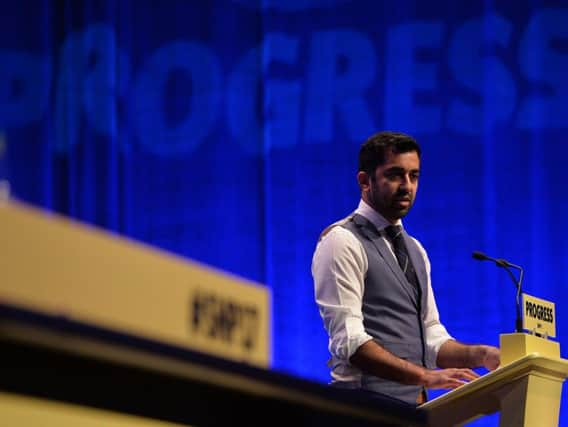Humza Yousaf: I would meet Twitter trolls who send me racist messages


Humza Yousaf made the comment as he announced £300,000 of Government funding for a plan to enable crime victims to meet offenders who harmed them.
He tweeted: “From personal experience am excited about our Restorative Justice Plan.
Advertisement
Hide AdAdvertisement
Hide Ad“I’d like to sit down with those who tweet me racial/Islamaphobic abuse on weekly basis & get them to understand impact it can have, not just on me but on my family.”
Restorative justice, where official meetings are organised between victims and perpetrators in a safe environment, is currently available but a survey last year found provision is “inconsistent” and “limited”.
Mr Yousaf said the £300,000 will be spent in the next four years to boost training, public awareness and information sharing between services to enable nationwide access to restorative justice.
He stressed meetings will be voluntary for both sides and guided by trained staff.
The action plan states the meetings can provide closure for victims, and can lead to “less fear of re-victimisation, a reduced desire for violent revenge and fewer symptoms of post-traumatic stress”.
Evidence of a reduction in reoffending among perpetrators who take part is less pronounced, according to the plan, but studies suggest this does also occur.
Meetings would not “impinge on ongoing criminal proceedings”, the plan states.
Mr Yousaf said: “We are committed to developing a smarter justice system, with the needs of victims at its heart.
Advertisement
Hide AdAdvertisement
Hide Ad“Developing a restorative justice system will support those victims who choose this route, where appropriate alongside the criminal justice process, to move past traumatic harm.
“It can also make those who have caused harm better understand the impact of their actions, thereby helping to reduce the likelihood of more harm.”
Community Justice Scotland helped develop the action plan.
Gemma Fraser, improvement lead for the organisation, said: “Everyone harmed by crime in Scotland has a right to experience justice in a meaningful way - however, the system can often make victims of crime feel both voiceless and powerless over what has happened to them.
“Restorative justice allows victims to express the impact that harm has had on them, their family and community.
“Those who have offended are faced with the reality of this and asked to account for their actions and to pay back in a significant way.”
Kate Wallace, chief executive of Victim Support Scotland, praised the action plan for putting the protection of victims and witnesses of crime at the forefront of the restorative justice system, and ensuring it is voluntary.